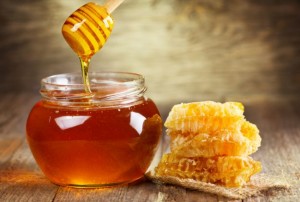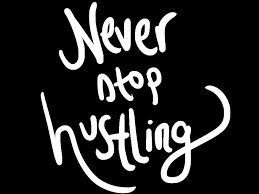 Picture found here
Picture found here
I was looking at Science Illustrated (an amazing magazine by the way) the other day. I found an article called, “Snails improved their memory after eating chocolate”. I thought it was interesting so I looked further into it. Apparently chocolate can actually help with memory!
So it’s not actually chocolate but there is something in cocoa and green tea that can further the amount of time and strength of a snail’s memory. It is a type of antioxidant and also a natural phenol that goes by the name of epicatechin (epi for short). It is a type of flavonoid. The epicatechin in the chocolate is what is supposedly helping people (and snails) with their memory.
Hypothesis: Chocolate improves memory
Null Hypothesis: Chocolate does not improve memory
Alternative Hypothesis: Chocolate does improve memory
So in this study Snails improved memory after eating Chocolate Professor Kenneth Lukowiak and researchers from the University of Calgary tested this hypothesis on snails. Yes, snails! This experiment randomized the snails into two groups, a control group and a treatment group. So the control group was 1 group of pond snails in standard pond water. The next group of pond snails were in pond water with an epi solution. This is equivalent to how much humans consume so it didn’t affect the snail in any other behaviors.
So here the x-variable is the snails being exposed to epi.
The y-variable is an improvement in their memory abilities.
Some 3rd variables could be: type of water, temperature of water. This isn’t a well conducted experiment because it was only done using 30 snails. There is also no replication to this experiment.
Chance could be possible.
Getting back to the study, they did a 30-minute session where they trained the snails to, “keep their breathing tubes closed in deoxygenated water”, stated by Shirley Chau in a Science Illustrated online article. The control group remembered this for less than 3 hours. The other group had this memorized for up to 72 hours. Due to these results the scientists rejected the null hypothesis. So does chocolate improve memory? Yes, yes it does on snails. We still don’t know how well it would work on humans though.
The next study used the concept of extinction to see the strength of the memory. This is process in which they, “override old memory with new memory”, Shirley Chou states. They teach the snails how to open their breathing tubes. The epi-group kept their snorkels shut. It took 3 training session for the epi-group for the extinction to go through. It took the control group 1. This means that the epi-group remembered it so well, it wasn’t that easy to forget, or override their old memory. The control group on the other hand, forgot the memory pretty fast, and overrode it with a new one, in one training session.
I read another article pointing that chocolate is an antioxidant that can help with one’s memory skills. This article had done studies on human beings.
Hypothesis: Eating chocolate gives one better memory
Null hypothesis: Eating chocolate will not give one better memory
Alternative Hypothesis: Eating chocolate will give one better memory
There was a study, To Improve a Memory, Consider Chocolate, done by Dr. Scott A. Small and the study’s senior author at Columbia University Medical. People from the ages from about 50-69 drank a mixture containing high amounts of cocoa flavanols. After 3 months, this group did 25% better on a memory test than the group who got lower amount of flavanols. The experiment I used here did not mention whether this was a randomized or control experiment in the original study.
So here the x-variable is the cocoa flavanols that are being manipulated for the two groups.
The y-variable is improvement in one’s memory.
Some 3rd variables could be: hardness of test, diet
Chance could be possible.
For this article I really wish they would have given exact measurements of how much the high amount of cocoa flavanols mixture had compared to the lower amount. How do we compare those 2? We would have seen the type of effects the cocoa flavanols had if there was a double-blind placebo trial done in this experiment. This control group would be a group of people who would receive a mixture of a mixture that really had no cocoa flavanols at all.
So at this point you should probably get a bag full of Halloween candy and bring it to class. If the teacher has something to say, just say that you want to get an A in the class. JUST KIDDING. So most of the milk chocolate we eat is really processed and that results in most of the epicatechin being taken out of the chocolate. The Nature Journal talked about how dark chocolate is what you need. To get your daily dose of high-flavanol you have to eat 300 grams of dark chocolate a day. That is 7 bars worth! Looking at the studies, I still don’t see a strong correlation. Yes, it worked on the snails, but the humans didn’t really show an effect because we couldn’t compare to a control group. We really don’t know the effect of one group with and without chocolate because in the second study, both groups got the chocolate mixture. I am personally really interested in this whole study so I thought my own study to try on my peers.
My study
For my study I really wanted to focus on college students the most. I mean hell, we need it to ace those tests. I would conduct a double-blind randomized placebo trial. They would be randomized from major, gender, and year. It would need to be randomized because college is full of diverse students. Also for example, if we got all Pre-Med majors, a lot of what they do is memorization. This would not help out study. The control group consisting of 10 people would be given 4 fake bars of chocolate for 2 weeks. The other group (10 people) would eat about 4 bars of dark chocolate a day, for 2 weeks. No one would know what chocolate bars they were getting. Overall this study should be replicated and more studies done on this topic so 3rd variables can get ruled out. It would be easy to find students on this campus because there are so many students. Once there are more studies on this experiment and this topic on general we can also get peer reviewed by others.
Hypothesis: Dark chocolate improves memory skills
Null Hypothesis: Dark chocolate does not improve memory skills
Alternative Hypothesis: Dark chocolate does improve memory skills.
So here the x-variable is the dark chocolate.
The y-variable is improvement in memory skills
Some 3rd variables could be: diet, workload,
Chance– yes, it is a possibility
So after 2 weeks I would give the 20 students a memory test and see how they did.The funny thing is I hate dark chocolate it, but am willing to eat if it helps me with my memory skills! So my question to you is how could I test this on myself? I have a couple of ideas like making myself take 2 tests. 1 without eat dark chocolate and one with. Please, I would love to hear your ideas, and YES, I am seriously going to do this.
 Picture found here
Picture found here
Belluck, P. (2014) To improve a memory consider chocolate. New York Times.
http://www.nytimes.com/2014/10/27/us/a-bite-to-remember-chocolate-is-shown-to-aid-memory.html?_r=0
Chou, S. (2012) Snails improved their memory after “eating chocolate”. Science Illustrated.
http://scienceillustrated.com.au/blog/nature/snails-improved-their-memory-after-eating-chocolate/














 <<<<One my my favorite videos about GETTING RID OF SOCIAL MEDAI DISTRACTIONS
<<<<One my my favorite videos about GETTING RID OF SOCIAL MEDAI DISTRACTIONS